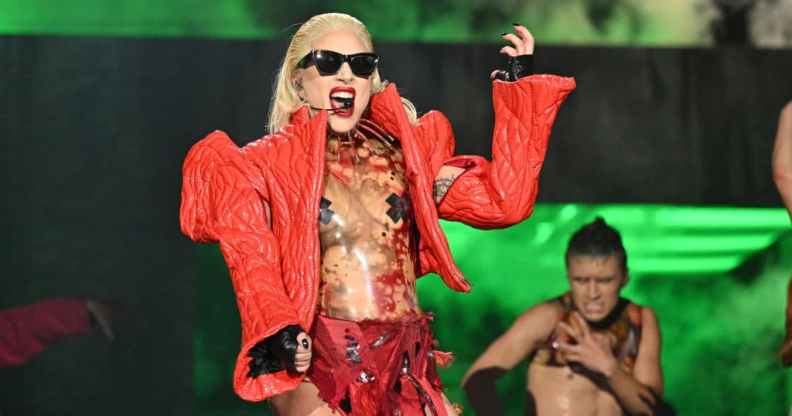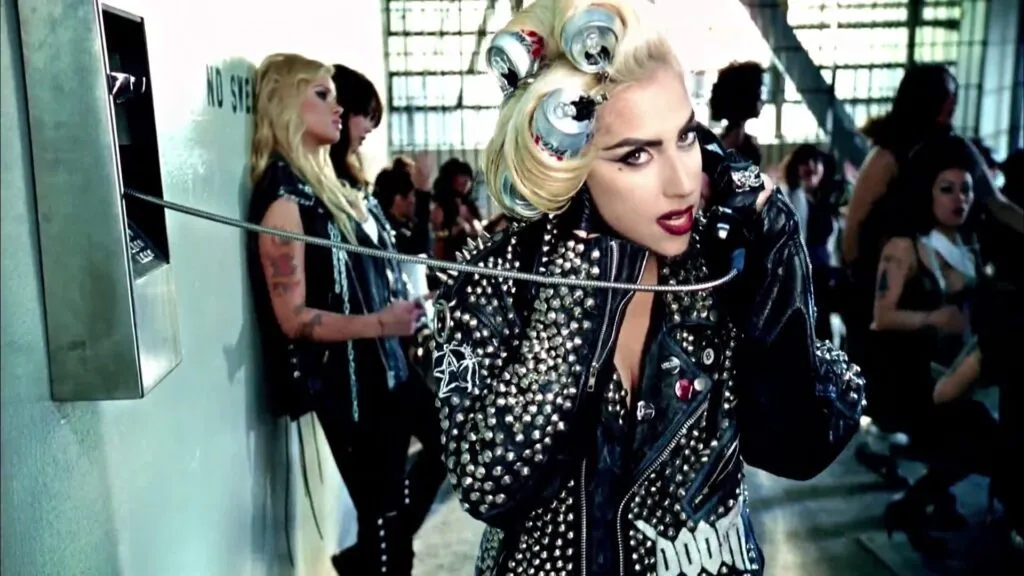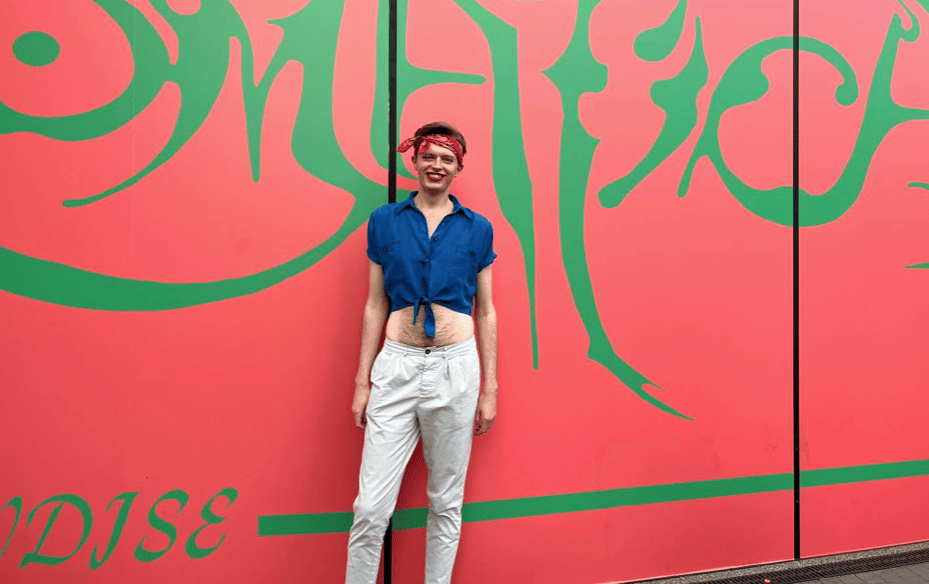Lady Gaga’s Chromatica Ball was a full-circle moment for fans who’ve struggled with their queerness

Lady Gaga performs on stage during The Chromatica Ball Summer Stadium Tour at Tottenham Hotspur Stadium. (Getty)
Lady Gaga’s Chromatica Ball helped me shed shame and know I’m on the right track, writes Just Like Us ambassador Tristan Marris.
When Lady Gaga became famous in 2008, I was 12 years old.
At that age, I couldn’t even describe myself as closeted, because I didn’t know I was gay. I didn’t have any idea of what I was, I only knew that I felt somehow different from everyone else.
What I did know, however, was that Lady Gaga owned her differences. The things that made her stand out made her powerful.
At 12, I was scared of this. I definitely didn’t like being different, and I certainly didn’t want any hint of her reputation as a gay icon – present right from the beginning of her career – attached to me at school. So, despite secretly enjoying her absolute bops, 12-year-old me (the arbiter of taste, officially) denounced Gaga as a passing fad.
Of course, we all know this didn’t happen. She followed up with a reissue of her debut album, The Fame Monster, in 2009. This was another huge success, launching tracks such as “Bad Romance”, “Telephone” and “Alejandro”. After this, Lady Gaga travelled the world with The Monster Ball Tour, which my elder sister went to.

Lady Gaga in her Fame Monster era. (YouTube)
At the time, I was still secretly obsessed with her music and fashion – those Alexander McQueen armadillo heels will forever live in my head rent-free – but I still distanced myself from her publicly.
I remember feeling hugely jealous of my sister because I had no way of expressing how much I wanted to go to see Lady Gaga without, I felt, opening myself up to questions about my sexuality.
By 2011, things had shifted for me. I was now 15 years old, and I had realised that my feelings of difference were down to my sexuality. I knew I liked other boys, but I didn’t yet know (or wasn’t willing to admit to myself) that I liked guys exclusively.
I used to spend hours secretly trawling the internet just to know that I wasn’t alone in my feelings. I consumed coming out stories on YouTube voraciously to reassure myself that I was normal. Surely, somewhere, there must be someone else like me.
In this context, Lady Gaga’s trailblazing anthem “Born This Way” came as a massive relief for me. Though I couldn’t outwardly enjoy it, hearing a musical superstar sing publicly and unashamedly about celebrating LGBTQ+ rights struck a chord with me – no pun intended. It was still an uphill struggle against feelings of shame and loneliness, but now I had Mother Monster supporting me.
From there on, it was a long journey, but as the cliché says, it did get better. We’d done a rendition of “Applause”, the lead single from Gaga’s third studio album Artpop, in the school choir I was in, which made me feel affirmed as a (secret) Little Monster. By the time I left home for uni, I had a handful of friends that I’d come out to as gay.
At uni, I came out to my newfound friends quickly to get it over and done with, and they were totally fine. I found people like me and we danced to songs like “Born This Way” more times than I care to count.
Over the next couple of years I came out to my family and older friends, and by June 2016 I was fully out to everyone. Since then, I’ve been lucky enough to tell my story of growing up gay to hundreds of young people through the Ambassador Programme run by LGBT+ young people’s charity, Just Like Us. It’s my way of paying it forward – so that LGBTQ+ young people today know that I and many others are singing along to “Born This Way” with them, no matter how quietly they’re singing it.
When Lady Gaga returned to London on 29 July with her Chromatica Ball, I went with a friend – but we weren’t alone. There, along with 46,000 other Little Monsters, was 12-year-old Tristan, lost and confused among his feelings. There, too, was 15-year-old Tristan, excited to be there, but scared to be seen among the crowd.

Tristan at the Chromatica Ball in London. (Tristan Marris)
During her piano rendition of “Born This Way”, Gaga had the entire arena in the palm of her hand. It was as if, together, everyone was holding their collective breath. I felt like saying to them both: “Look around you – you’re home. Mother Monster is here. You’re on the right track, baby, you were born this way.”
Tristan volunteers with Just Like Us, the LGBT+ young people’s charity. They need volunteers – sign up now to get involved.

